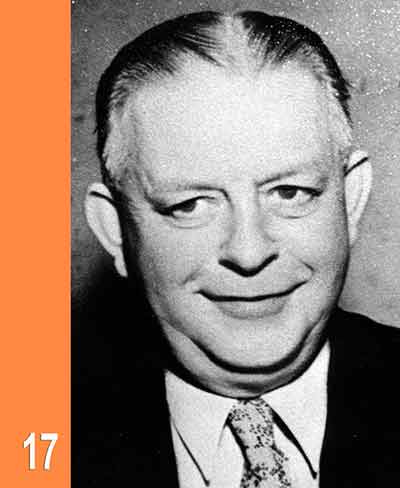Ralph L. Millett, Sr.
Inducted 1973
Newspapers; Dallas Dispatch
Memphis Press; The Penny Bee, Memphis
Memphis News-Scimitar; Memphis Press-Scimitar
As editor of three newspapers, two of them in Tennessee, Ralph Linwood Millett devoted much of his career to crusading for the rights of people who were powerless to against established opposition.
He was a young Yankee-born editor out of Maine when he took on the Dallas, Texas, police department in 1909 in his Dallas Dispatch. He backed up his paper's news stories of police brutality with a signed editorial against the excessive use of force by a policeman. And despite threats from the policeman involved in the incident, Millett even printed his home address to make it easier for the policeman to find him.
Millett moved to Memphis in 1916 as editor of the Memphis Press and ran headlong into the political machine of E.H. Crump. He launched a continuing battle against Crump which he carried on until Crump's defeat in 1948. During 1918 and 1919 he was editor of his own paper, the Penny Bee. He was managing editor of the Memphis News-Scimitar from 1920 to 1924. And he became political editor of the Memphis Press-Scimitar in 1926 and associate editor in 1932, a position he held for 22 years.
Millett not only used his considerable writing talents against political corruption, he took as his own the causes of many who might otherwise have been unable to fight injustices.
When a crippling city ordinance threatened the livelihood of the small grocers and worked a hardship on the working people by forcing meat markets to keep a 40-hour week, Millett not only launched a stinging editorial attack against the city commission, he appeared in person before the group, seeking and winning repeal of the ordinance.
He backed the rights of married women teachers in wartime and wrote numerous editorials pointing out the plight of the elderly long before either the government or the public expressed much concern about them. One of his suggestions, led to the creation of Sunset Home for elderly couples.
A tireless campaigner for improvement of Memphis, Millett launched a campaign to stop automobile horn honking in the city. The anti-noise ordinance proved so effective that Memphis soon was winning international attention as the nation's "quietest city." Despite a stroke which caused him partial paralysis in 1950 and confined him to his home, he continued to write editorials championing the cause of the "little people" for the Press-Scimitar until a second stroke brought about his death in 1954 at the age of 76.
